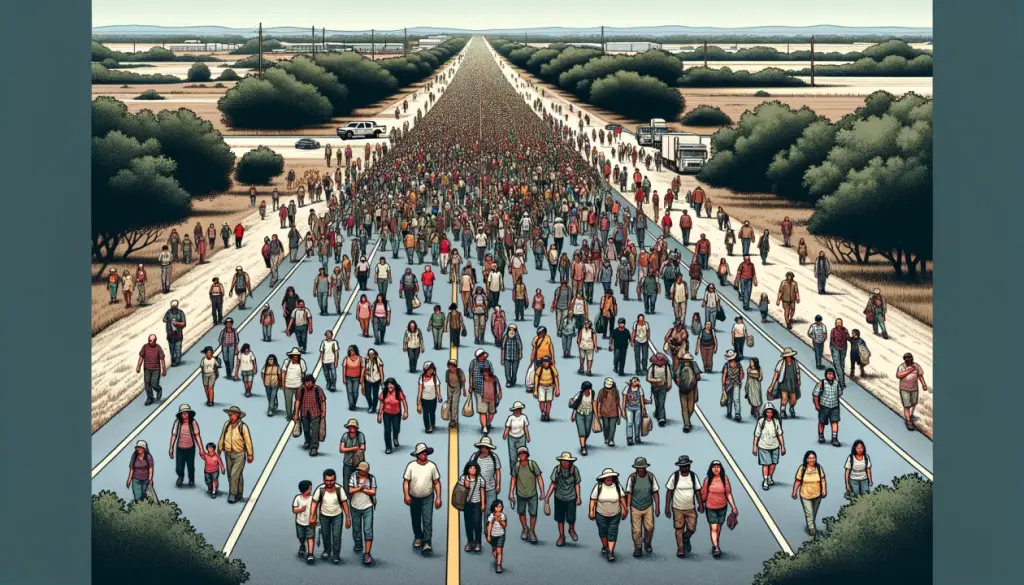A significant migrant caravan, the largest in over a year, is currently making its way through Mexico towards the US border. Comprising around 8,000 asylum seekers, primarily from Cuba, Haiti, and Honduras, this group marks a notable increase in the number of migrants heading towards the United States.
The caravan began its journey on Sunday, traveling more than nine miles from the Mexican southern border city of Tapachula to reach Alvaro Obregón. Migrant rights activist Luis Garcia Villagran, accompanying the group, has indicated that the number could swell to as many as 15,000 people by the time they reach the US border. The group’s determination is evident in their signs, which read “Exodus from poverty.”
The journey has been challenging, with the migrants spending Christmas night sleeping on cardboard or plastic under awnings and tents. Their Christmas Eve dinner was modest, consisting of sandwiches, a bottle of water, and a banana, provided by a local church.
This influx of migrants is adding pressure to the United States’ Border Patrol, which has already encountered more than 730,000 asylum seekers at the southern border since October. This figure surpasses the entire population of Denver, Colorado. December is on track to set a monthly record for migrant encounters, with up to 10,000 migrants being apprehended each day at the southwest border this month.
In response to this surge, the US Customs and Border Patrol recently halted railway operations at international crossings into Texas. The agency is surging all available resources to safely process migrants, in collaboration with Mexican authorities, to address the increase in migrant encounters at the southwest border.
Border Patrol agents have expressed being overwhelmed by the surge in migrants, with reports of migrants outnumbering agents 200 to 1 at one Texas crossing. The National Border Patrol Council has voiced concerns about the current situation, stating that agents are more than willing to sacrifice holidays to protect Americans, but they are hindered by policies that allow cartels to control the border.
Federal officials from the United States are set to meet with their Mexican counterparts in Mexico City to discuss ways to stem the tide of migrants. The Mexican government has expressed willingness to assist in stopping migrants from crossing its country. Meanwhile, Mexican President Andrés Manuel López Obrador has urged the Biden administration to ease sanctions against Cuba and Venezuela and to provide more financial aid to struggling Latin American countries, from which many migrants are fleeing in search of better economic opportunities.
This situation highlights the complex challenges faced by both the United States and Mexico in managing the flow of migrants and addressing the underlying causes of migration.


